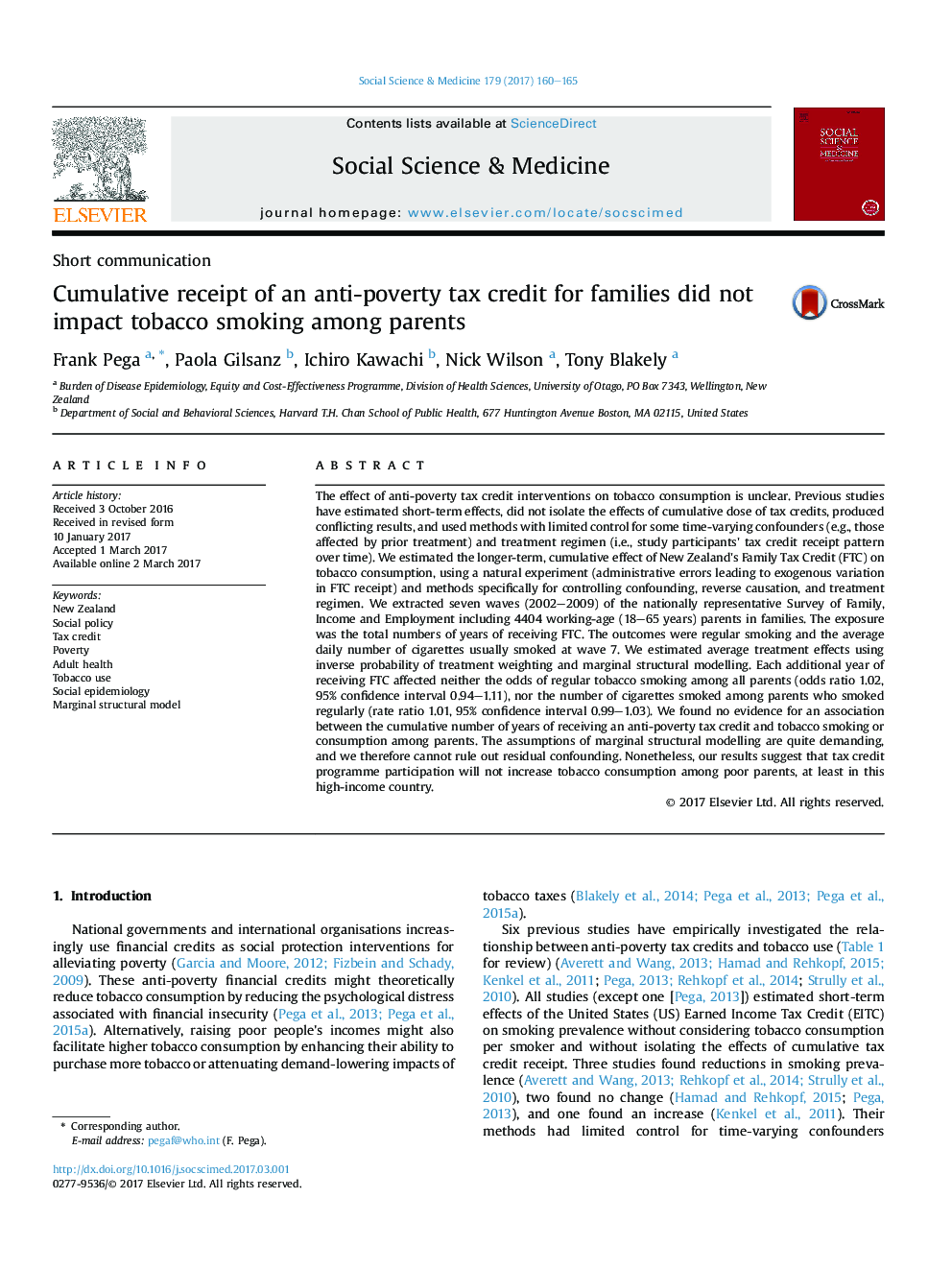| کد مقاله | کد نشریه | سال انتشار | مقاله انگلیسی | نسخه تمام متن |
|---|---|---|---|---|
| 5046640 | 1475990 | 2017 | 6 صفحه PDF | دانلود رایگان |
- Effects of anti-poverty tax credits on smoking in high-income countries are unclear.
- Prior studies estimated short-term effects with mixed results and some risk of bias.
- We estimated the cumulative effect of receiving New Zealand's Family Tax Credit.
- Marginal structural models controlled time-varying confounders and treatment regimen.
- Family Tax Credit impacted neither tobacco smoking, nor numbers of cigarettes smoked.
The effect of anti-poverty tax credit interventions on tobacco consumption is unclear. Previous studies have estimated short-term effects, did not isolate the effects of cumulative dose of tax credits, produced conflicting results, and used methods with limited control for some time-varying confounders (e.g., those affected by prior treatment) and treatment regimen (i.e., study participants' tax credit receipt pattern over time). We estimated the longer-term, cumulative effect of New Zealand's Family Tax Credit (FTC) on tobacco consumption, using a natural experiment (administrative errors leading to exogenous variation in FTC receipt) and methods specifically for controlling confounding, reverse causation, and treatment regimen. We extracted seven waves (2002-2009) of the nationally representative Survey of Family, Income and Employment including 4404 working-age (18-65 years) parents in families. The exposure was the total numbers of years of receiving FTC. The outcomes were regular smoking and the average daily number of cigarettes usually smoked at wave 7. We estimated average treatment effects using inverse probability of treatment weighting and marginal structural modelling. Each additional year of receiving FTC affected neither the odds of regular tobacco smoking among all parents (odds ratio 1.02, 95% confidence interval 0.94-1.11), nor the number of cigarettes smoked among parents who smoked regularly (rate ratio 1.01, 95% confidence interval 0.99-1.03). We found no evidence for an association between the cumulative number of years of receiving an anti-poverty tax credit and tobacco smoking or consumption among parents. The assumptions of marginal structural modelling are quite demanding, and we therefore cannot rule out residual confounding. Nonetheless, our results suggest that tax credit programme participation will not increase tobacco consumption among poor parents, at least in this high-income country.
Journal: Social Science & Medicine - Volume 179, April 2017, Pages 160-165
